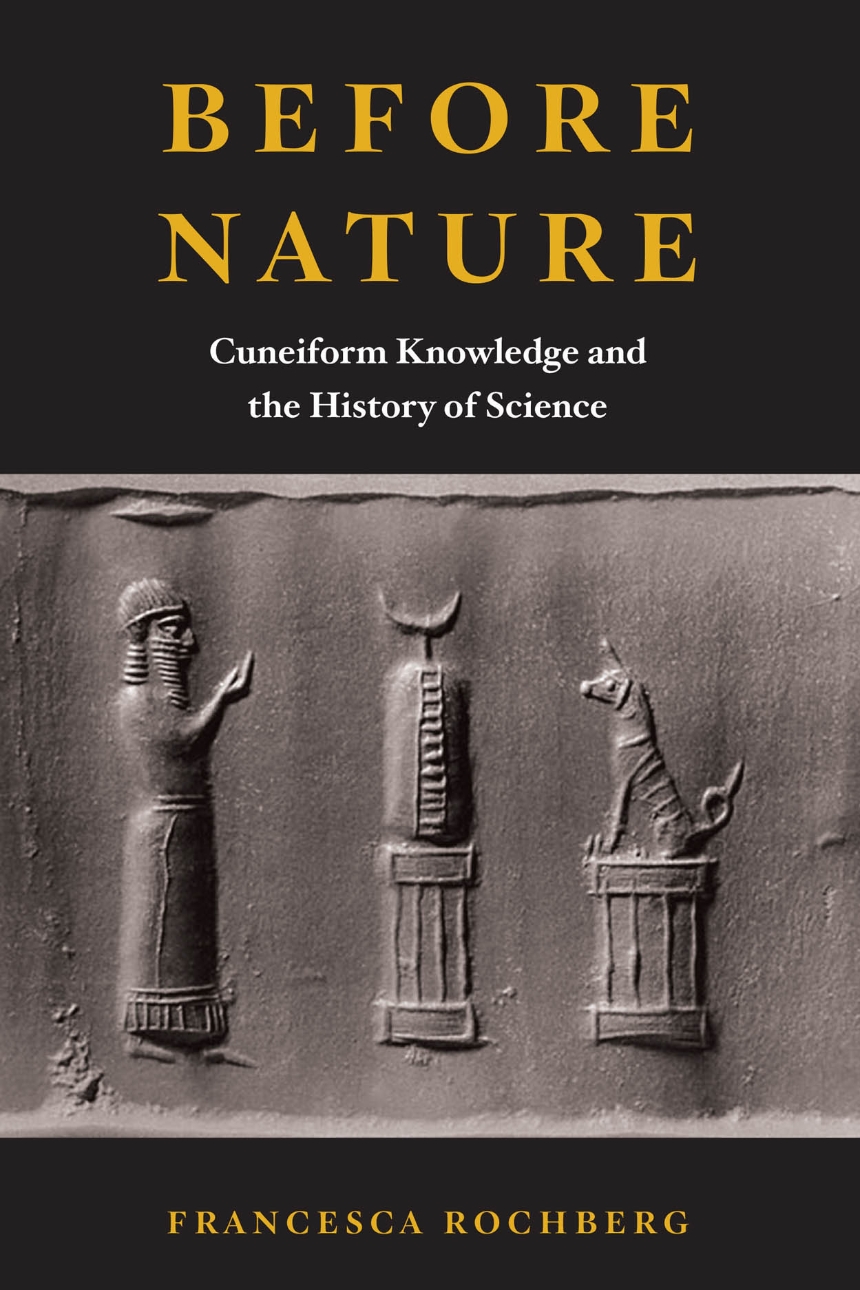Before Nature
Cuneiform Knowledge and the History of Science
Before the concept of nature formed over the long history of European philosophy and science, our ancestors in ancient Assyria and Babylonia developed an inquiry into the world in a way that is kindred to our modern science. With Before Nature, Francesca Rochberg explores that Assyro-Babylonian knowledge tradition and shows how it relates to the entire history of science. From a modern, Western perspective, a world not conceived somehow within the framework of physical nature is difficult—if not impossible—to imagine. Yet, as Rochberg lays out, ancient investigations of regularity and irregularity, norms and anomalies clearly established an axis of knowledge between the knower and an intelligible, ordered world. Rochberg is the first scholar to make a case for how exactly we can understand cuneiform knowledge, observation, prediction, and explanation in relation to science—without recourse to later ideas of nature. Systematically examining the whole of Mesopotamian science with a distinctive historical and methodological approach, Before Nature will open up surprising new pathways for studying the history of science.
392 pages | 1 halftone, 1 table | 6 x 9 | © 2016
History: Ancient and Classical History, History of Ideas
Physical Sciences: History and Philosophy of Physical Sciences
Reviews
Table of Contents
Introduction: The Ancient Near East, Science, and Nature
Part I. Historiography
Chapter One. Science and Nature
Chapter Two. Old Ideas about Myth and Science
Part II. Cuneiform Knowledge and Its Interpretive Framework
Chapter Three. On Knowledge among Cuneiform Scholars
Chapter Four. A Cuneiform Modality of Order
Part III. Rationality, Analogy, and Law
Chapter Five. The Babylonians and the Rational
Chapter Six. Causality and World Order
Part IV. The Cuneiform World of Observation, Prediction, and Explanation
Chapter Seven. Observation of Astral Phenomena
Chapter Eight. Prediction and Explanation in Cuneiform Scholarship
Conclusion
Acknowledgments
Abbreviations
Notes
Bibliography
Index
